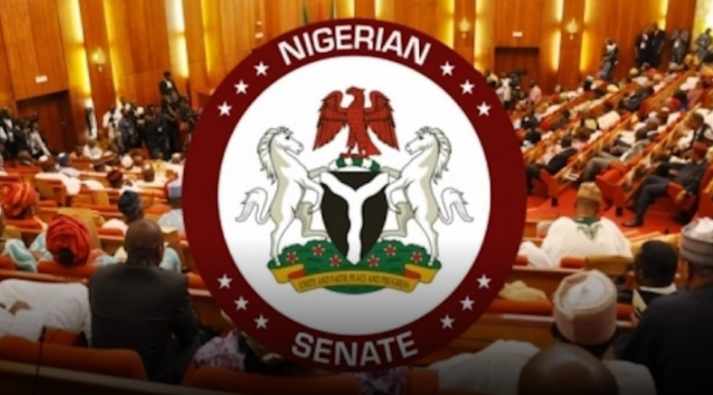
OBASANJO RETURNS ALLEGED $20,000 BIRTHDAY APPEARANCE FEE AS FAYOSE REVEALS BEHIND-THE-SCENES DRAMA

In a development that has sent shockwaves through Nigeria’s political circles, former Ekiti State governor Ayo Fayose has confirmed that ex-president Olusegun Obasanjo has returned the alleged $20,000 appearance fee reportedly given to him for attending Fayose’s 65th birthday celebration. The dramatic twist follows days of public back-and-forth between the two political heavyweights, with Fayose accusing Obasanjo of taking the money “at his request” only to allegedly act disrespectfully afterwards.
Speaking in detail during an interview with AF24 News, Fayose recounted the events leading up to the controversy and insisted that his reaching out to Obasanjo ahead of the birthday was not an attempt to mend their long-standing political rift. The former governor explained that, two weeks before his birthday, he contacted “several people” with whom he previously had political disagreements. But he made it clear that his gesture was simply goodwill, not an apology or reconciliation effort.
Fayose revealed that Obasanjo had warmly received him at his residence days before the celebration and expressed commitment to attend the event despite having another engagement in Rwanda. According to Fayose, it was during this interaction that Obasanjo allegedly requested money to cover the logistics for his travel and participation in the birthday celebration. Wanting to ensure the former president’s comfort and presence, Fayose claimed he immediately arranged the funds.
“I changed $20,000 and gave it to him, allegedly at his request,” Fayose said, expressing disbelief at the way events later unfolded. “How can someone accept money and then act spitefully?” he asked, suggesting that Obasanjo’s public remarks after the event had been less than respectful. The tension between the two seemed to heighten when Obasanjo publicly stated that he had not even opened the package containing the money and that he would return it.
True to his word, Obasanjo reportedly returned the funds shortly after Fayose sent what he described as a “stern message.” Confirming receipt of the money, the former governor said, “I have written to him, and he has returned my $20,000.” When pressed on how he felt about the return, Fayose did not hold back. “I am very happy. I will not allow such a person to keep my money,” he stated, clearly pleased that the funds were back in his possession.
The entire episode has sparked widespread debate among Nigerians, many of whom see it as another chapter in the long history of political theatrics that often surrounds the country’s leaders. Obasanjo and Fayose have had a turbulent relationship over the years, marked by public disagreements, criticism, and political clashes. This latest incident has only added to the perception that their feud remains unresolved and deeply personal.
Political analysts say the controversy raises questions about the ethical and symbolic implications of political figures exchanging money over social events, especially when such funds can be interpreted as patronage, influence, or obligation. The return of the money, though seemingly straightforward, highlights deeper issues about trust and political accountability between leaders who have shaped Nigeria’s democratic trajectory.
Some Nigerians have taken to social media to express their astonishment that a former president would be given cash in dollars for attending a birthday celebration, while others questioned why the issue had to become public at all. Critics argue that both men should have handled the situation privately, while others insist that transparency—no matter how uncomfortable—is essential in public life.
The public nature of the controversy, however, seems to have been fueled by Obasanjo’s initial statement disclaiming the funds. In that statement, Obasanjo had said he would not keep what he described as an unsolicited package, emphasizing that he had not opened it and would return it immediately. Fayose, on the other hand, appeared upset by the tone of the former president’s remarks and felt compelled to clarify that the money had been given at Obasanjo’s behest.
Observers believe that the entire saga could further strain the already fragile relationship between the two men, both of whom have significant political influence in the southwest and across Nigeria. Their past disagreements, often played out in the media, include issues ranging from governance style and political endorsements to public criticisms of each other’s leadership records.
Despite the drama, Fayose maintained that he had no regrets about reaching out to figures he had previously clashed with. According to him, birthdays are milestones that sometimes call for reflection, maturity, and even outreach to old adversaries. What he did not anticipate, he suggested, was that the gesture would spiral into a national headline.
For Nigerians watching the situation unfold, the incident serves as another reminder of the complex personalities at the helm of the nation’s political landscape. It also reflects how interpersonal grievances between influential figures can easily become matters of public interest, especially when financial transactions are involved.
As both camps remain silent on what might happen next, political watchers speculate whether this controversy will be the final straw that permanently fractures their relationship, or if it is simply another storm that will eventually blow over. Given their history, many expect more twists in the future.
For now, Fayose’s $20,000 has returned to his pocket, Obasanjo’s reputation for rejecting questionable gestures remains intact, and Nigerians are left to dissect the latest political drama involving two of the country’s most outspoken figures. Whether this incident will fade quietly or ignite new tensions remains to be seen, but one thing is certain—the story has captured national attention and reinforced the unpredictable nature of Nigeria’s political theatre.


